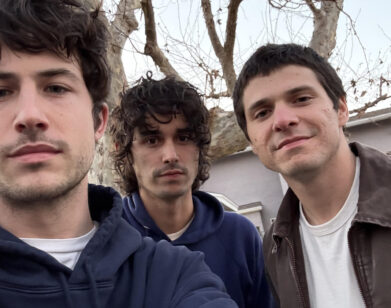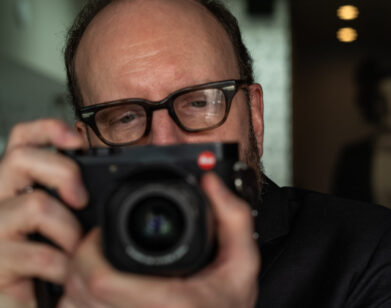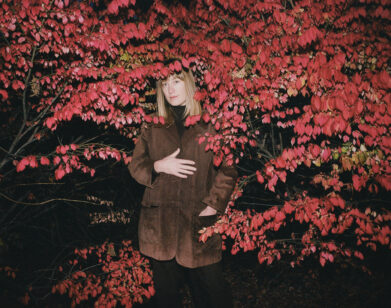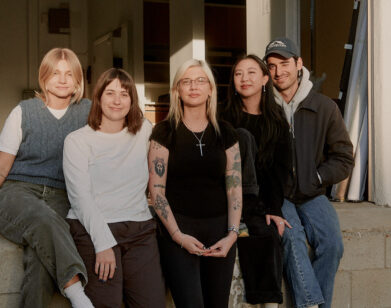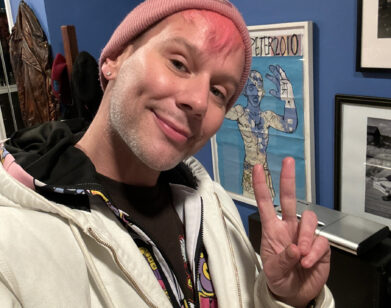Amanda Coplin’s Northwest Passages
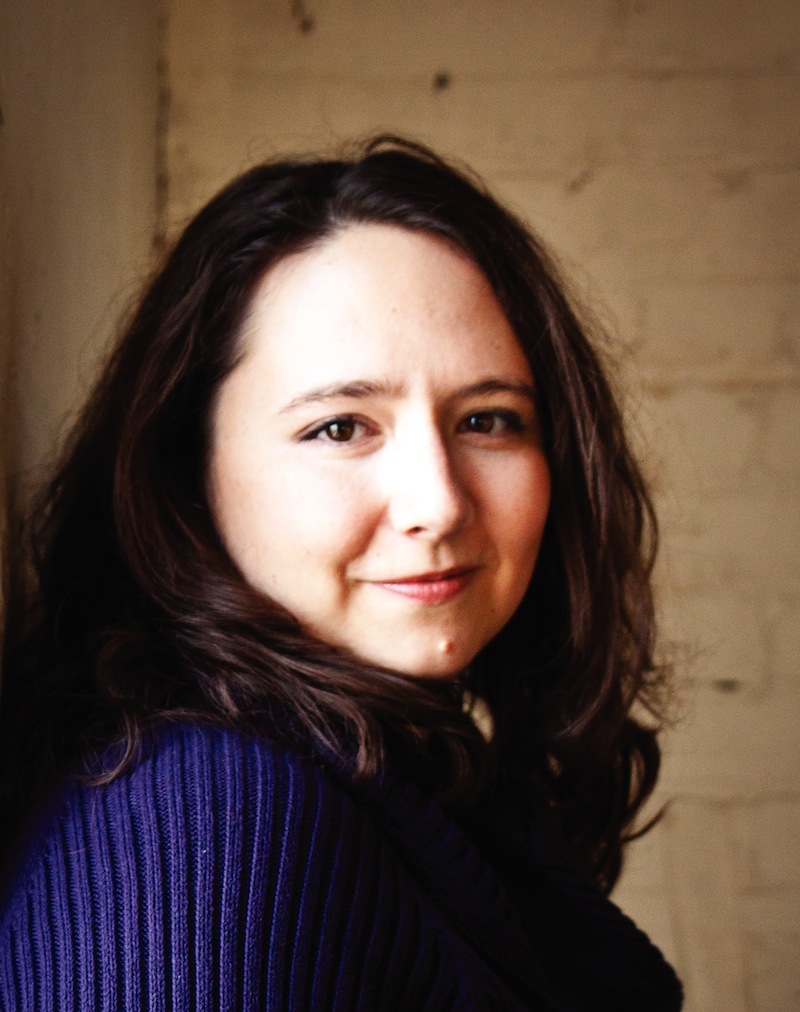
IMAGE COURTESY OF CORINNA BERNSTEIN
In Amanda Coplin’s dramatic debut novel The Orchardist (Harper Collins), the author draws us into a lush natural world full of beauty and danger, courage, and sacrifice. At the turn of the 20th century, the Pacific Northwest is still wild land, tamed by the worn and caring hands of Talmadge, owner of a beautiful and sprawling orchard. A slow, quiet man, Talmadge is still ruled by regrets from his past, mainly his younger sister’s mysterious disappearance years before. When two pregnant and very young girls stumble onto his land, terrified from the lives they have escaped, he protects them no matter the cost to himself.
Spanning lifetimes and countless seasons with care and startling poetry, Coplin effortlessly weaves in and out of her characters’ lives, both together and apart, while painting her pages with the colors of nature. As vast, humbling, gentle, cruel, and breathtaking as its landscapes, The Orchardist is a stunning look at how far we will go for love and what happens when that distance is dangerous.
Interview spoke with Coplin about people’s relationship with the earth, her grandfather, fate, chances for redemption, and knowing our hearts and their hidden, wild, crazy desires.
ROYAL YOUNG: You wrote about a time and place when the land was so much more rough and open. When our interactions with it were real in a way I’ve never experienced.
AMANDA COPLIN: I am so interested in people’s relationship to their landscape. During the time I wrote about, your livelihood depended on your relationship with the land. That changed people’s thoughts about life and death, if they believed in God, their whole personal philosophy.
YOUNG: Sometimes the land is so big that you’re lost in this vastness. That’s humbling.
COPLIN: Yes, and I think that shapes our sense of fate, what is controlling our destinies. It’s so human to read our landscape as this really mysterious thing. What is behind it? Does it mean anything?
YOUNG: How did your upbringing, growing up in apple orchards and nature, affect you?
COPLIN: I was born in Wenatchee, but my grandparents had apple orchards on the edge of town in this little community called Monitor. This beautiful, quiet green place of rolling hills. I would roam around. I was really close with my grandfather, whom Talmadge was loosely based on. My grandfather had really bad heart problems, so the family was always worried about the next time he would have a heart attack. This weird fusion happened between me worrying about this person who was so close to me and the beauty of the landscape, which imbued this grief.
YOUNG: I love this need in Talmadge to protect. What is the nature of protection? Also, is there a burden placed on the protector?
COPLIN: Early in Talmadge’s life, he lost his sister. He never had the opportunity to protect her. So later, when two young women come into his orchard, there’s this delayed possibility to protect. This causes him to act in ways that aren’t really rational. Protection is a really important, powerful human need.
YOUNG: A lot of people don’t have a protector. So when someone comes along who so selflessly wants to do that, it can be very powerful.
COPLIN: Yes, and to be defenseless can be crippling. There are people being abused who have no power and can’t protect themselves or those around them and it’s just awful.
YOUNG: I think being powerless is one of my biggest fears.
COPLIN: Of course.
YOUNG: There’s a big difference between when people disappear and when they die. With death there’s a definite end, but with disappearance there’s just a never knowing. I want to talk with you about the difference between those pains.
COPLIN: Speaking of things that one is most afraid of, I really thought a lot about how utterly unbearable it would be having someone you love disappear. Years might pass and suddenly you would think: What have I been doing? I haven’t been doggedly searching for this person who might be alive somewhere. It’s something that would never go away. Or you would comb your past for where you made a mistake. That’s what Talmadge does. For the rest of his life, he’ll be thinking about what he did wrong. Though when somebody dies, you always think: is that it? Will I ever meet this person again? There’s always a sense that someone you love so much is never going to exist again.
YOUNG: No matter the type of loss, we never stop looking for people we love. Do you think redemption is possible?
COPLIN: I think so. Even if it’s not a feel-good redemption. If I believed it wasn’t possible, it would hard for me to get out of bed in the morning. We’re always hoping and learning.
YOUNG: When you care for someone who doesn’t give a shit about you, what happens?
COPLIN: Things get out of control. It’s not reasonable. There is a certain point with Talmadge and Della, when another person would say, “This is enough, she can’t be helped, she doesn’t want my help.” They would step away. But he just amps up the obsession, partly because of his anxiety about his lost sister, but also he partly identifies with Della. She constantly isolates herself and says she doesn’t need anybody. In caring about her against her will, maybe it’s a hope that someone will do the same for him. That’s a common human thing, no matter how much you kick and scream, you always want someone who will see through that and stay.
YOUNG: Yeah, that happens to me a lot. [laughs]
COPLIN: [laughs] It happens to us all.
YOUNG: But we can’t expect people to just read our hearts, even if that’s what we yearn for. How do we break out of that?
COPLIN: We have to talk about it. That’s what’s so hard. It’s really hard to say to somebody, “I’m feeling this way and I need this from you.” It’s very childish actually to expect someone to know what you need and get upset when you don’t get it. And I’m saying that without being above it.
YOUNG: How do we push through despair? Do we meet our darkness head on?
COPLIN: There are moments where a certain type of personality, they have the need to get to a place of emergency or danger, in order to really experience anything. I don’t know if we can characterize what that wildness is. There’s something hidden, wild and crazy, which we all have and which drives us. We don’t want to look at too closely. We might burn up. But I think it’s important. It’s what drives our art and certain desires, but it’s also dangerous.
YOUNG: You’re saying let in run free, but don’t look it in the eyes?
COPLIN: You can’t just repress it, or you never know what’s going to happen. But definitely don’t look it in the eyes.
THE ORCHARDIST IS OUT NOW.

